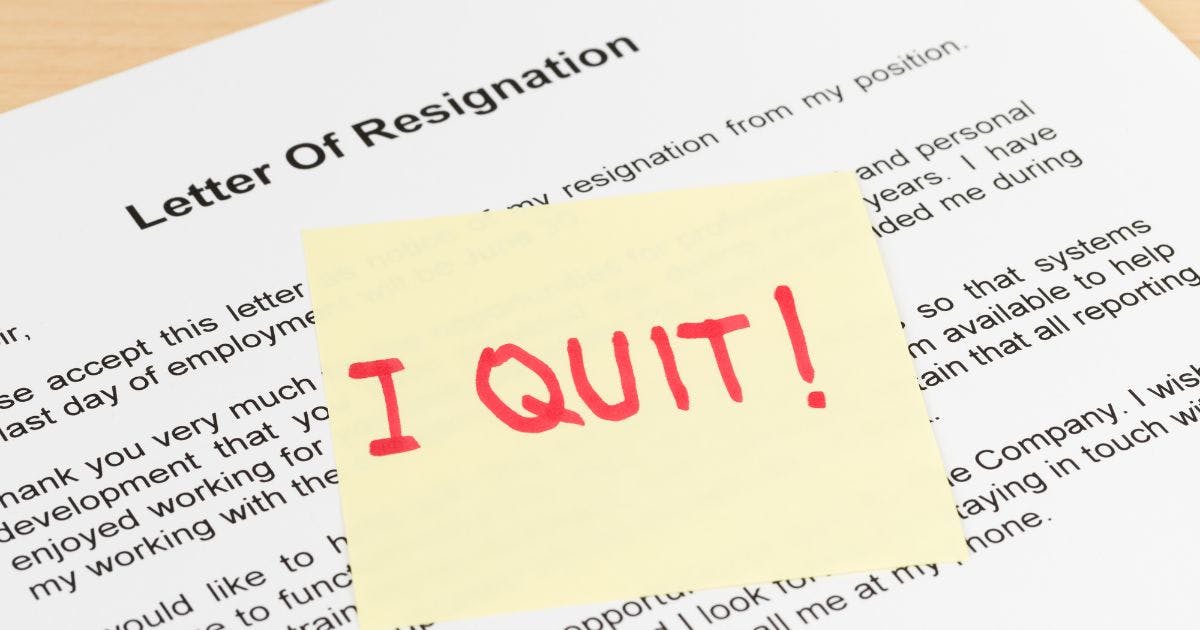Journalist Job Description

Learn about:
- What does a journalist do?
- What are the duties of the Journalist position?
- What is the salary for Journalists?
- What qualifications should journalists have?
- What qualities do journalists need to have?
- Pros and cons of journalism and skills needed?
Journalists Job Scope
As a journalist, your job description includes capturing the pulse of the world, transforming information into compelling stories, and bringing deep, vivid insights to your audience. You are not only a deliverer of news, but also a witness to society and an agent of change. You are tasked with interviewing a variety of news sources, from government officials to ordinary citizens, to gather their voices and stories. Through in-depth research and interviews, you organize the information into compelling news releases that build bridges and connect viewers to events. Your job is to track news events as they unfold, ensuring that coverage is always up-to-date. You'll be the translator who explains complex issues, explaining the impact of policies and events to a lay audience and helping them understand what's going on. More importantly, you are a champion of free speech and democracy. Your reporting can drive social change, reveal injustice and hold decision-makers accountable.
- News Reporting: Collects, researches and organizes news events, including news in various fields such as politics, society, economy, culture, science and technology.
- Interviews: Interviews with stakeholders, experts, eyewitnesses, and other news sources to gain information, insights, and commentary.
- Research and Investigations: Conducting in-depth research and investigations to reveal social problems, scandals, wrongdoings, or other events with significant impact.
- News Writing: Write news reports, news articles, feature stories, reviews, etc., to ensure accuracy, clarity, and objectivity.
- Photography and Video Recording: Taking photographs or recording video to provide visual elements for news stories.
- Editing and Proofreading: Edit and proofread your own or other journalists' copy to ensure correct grammar and consistent style.
- News editing jobs: Some journalists may hold editorial positions in editorial departments, where they are responsible for selecting, editing, and organizing news stories.
- Multimedia Coverage: Create multimedia content, including online articles, social media posts, podcasts, video coverage, and more.
- News Distribution: Distribute news stories to different media outlets, including newspapers, magazines, television, online news sites and social media.
- Newsgathering Plan: Develop a newsgathering plan that identifies which stories should be covered and how resources and time will be allocated.
- Tracking News Developments: Continuously follow events as they unfold and update stories to provide the most current information.
Journalist role responsibilities
- Interviews: Conducts interviews with a variety of news sources and parties to gather information and insights.
- Information Gathering: Collects and organizes information, data, and literature related to news events.
- Story Writing: Writes press releases, news articles and other news content, including headlines, intros and body copy.
- Editing and Proofreading: Edit and proofread your own manuscript for accuracy, grammatical correctness, and style consistency.
- Photography and Video Production: Take photos, record videos, edit and manipulate multimedia content.
- News Distribution: Distribute stories to appropriate news platforms to ensure they are widely disseminated.
- Editorial Planning: Develop a news gathering plan to prioritize stories and allocate resources.
- Tracking News Developments: Continuously follow events as they unfold and update stories to reflect the latest.
- Regulatory Compliance: Comply with the regulations and code of ethics of the journalism profession to ensure fairness and objectivity in reporting.
- Interaction and Social Media: Interact with viewers, readers and social media followers to answer questions and provide additional information.
- ANALYSIS AND COMMENTARY: Writes opinion pieces or analyses that explain the meaning and implications of events.
Journalist salaries
Salary packages for journalists in Malaysia vary depending on a number of factors, including work experience, geographic location, and the size of the employer and news organization. Below is a general range of salary wages:
- Junior Journalists: Junior journalists can usually expect a salary between MYR 2,500 and MYR 4,000 per month. These journalists may be new to the job market or have 1 to 3 years of experience.
- Intermediate Journalists: Intermediate journalists with 3 to 7 years of experience can usually expect a salary in the range of MYR4,000 to MYR6,000 per month.
- Senior Reporters and Editors: Senior reporters and editors usually have more than 7 years of experience and their salary levels may range from MYR6,000 to MYR10,000 per month or higher. These positions may include news editors, special correspondents and feature reporters.
- Heads of News and Senior Editors: Senior positions, such as Head of News, Head of News Editing and Editorial Director, are usually paid at a higher level and may exceed MYR10,000 per month. These positions usually require extensive experience and leadership skills.
Check out the latest market salaries for journalists with Ricebowl's salary checker!
Types of Journalists
- Journalist: This is the most common type of journalist, who is responsible for covering and reporting on a variety of news events, including those in the political, social, economic, cultural, and sports fields.
- Special Correspondent: A special correspondent is assigned to the scene of a specific location or event in order to report on important news as it is happening, often needing to provide real-time coverage on short notice.
- Featured Reporters: Featured reporters specialize in specific topics or issues, such as the environment, education, health, science and technology, etc., and they delve into and report on news in related fields.
- Political Correspondent: Political Correspondent covers political events, elections, government policies and political developments, following the work of government and political institutions.
- Economic Reporter: The Economic Reporter focuses on national and international economic news, reporting on financial markets, trade, corporate activity and macroeconomic trends.
- Sports Journalist: Sports journalists cover sports competitions, athlete performance, sporting events and the sports industry.
- Culture and Entertainment Reporters: These reporters cover culture, art, film, music, literature, and entertainment, focusing on what's going on in the culture industry and entertainment world.
- Tech Reporter: The Tech Reporter covers the latest developments in the tech industry, including news in the areas of tech innovation, the internet, and artificial intelligence.
- Social Issues Reporter: The Social Issues Reporter focuses on social issues and public policy, covering topics such as social injustice, environmental issues, and health crises.
- Environmental Reporter: The Environmental Reporter covers news related to environmental protection, climate change and sustainable development.
- Law and Justice Reporters: These reporters follow news about legal cases, the justice system, court decisions and changes in the law.
- News Editor: The News Editor is responsible for editing and organizing reporters' copy to ensure accuracy, grammatical correctness, and consistency of style.
- Director of News and Editorial Supervisor: A senior-level position responsible for managing the news team, editorial planning, and decision-making on news policy.
- Independent and freelance journalists: Some journalists choose to work as freelancers, reporting the news independently and selling pieces to different media outlets.
What qualifications do journalists need?
- Bachelor's Degree: Most journalists have a bachelor's degree in a related field such as journalism, communications, English, history, political science, etc. While a degree is not required, it can provide basic journalistic knowledge and writing skills.
- News Writing Skills: Journalists need to have exceptional writing skills to be able to present news in a clear, concise and accurate manner. They should be able to write compelling stories while following the norms of news writing.
- Interviewing skills: Journalists need to master interviewing skills, including the ability to ask questions, listen, follow up and record information. Good interviewing skills help to gain in-depth information and insights.
- Research and Investigative Skills: Journalists should have the ability to research and investigate in order to gain insight into news events and identify key information. They need to collect and organize data, literature and information.
- Multimedia Skills: In a modern news environment, journalists may need to master multimedia skills, including photography, video recording, social media management and online publishing.
- Knowledge of Laws and Ethics: Journalists should be aware of journalistic laws and professional codes of ethics to ensure that reporting is legal, fair and ethical.
- Analyzing and Critical Thinking: Journalists need to analyze complex issues, identify bias and disinformation, and think critically to assess and verify the veracity of information.
- Flexibility and Adaptability: The journalism industry is changing rapidly and journalists need to remain flexible by adapting to new technologies, media and trends.
- Language skills: Journalists should be fluent in writing and speaking, and proficiency in both national and international languages is usually required.
- Teamwork: Journalists often need to work with editors, photographers, teams of reporters and other stakeholders, so teamwork skills are important.
12 essential qualities for Journalists
- Objectivity: Journalists should adhere to the principle of objectivity and avoid personal bias and stance in order to ensure the impartiality and neutrality of news reporting.
- Honesty and Integrity: Journalists are expected to report the facts of the news honestly, without exaggerating facts or fictionalizing information, and to maintain integrity and credibility.
- Dedication: Journalists should be passionate about their work and committed to delivering high quality journalism that is not compromised by difficulty or pressure.
- Respect for Privacy: Journalists should respect the privacy of others and avoid invading the privacy of individuals unless there is a legitimate journalistic or public interest.
- Legal Compliance: Journalists are expected to comply with journalistic laws and ethical guidelines to ensure that stories are legal and that they understand the boundaries of freedom of expression.
- Caution and verification: Journalists should handle sensitive information with care to ensure its accuracy and verify it to prevent the dissemination of false or inaccurate information.
- Respect for Diversity: Journalists should respect diversity across cultures, religions, races, and genders, and avoid discriminatory or biased statements.
- Responsible Reporting: Journalists should act responsibly when reporting on situations involving legal, safety or ethical risks and ensure that they do not jeopardize the safety or privacy of others.
- Protection of sources: Journalists should protect the invisibility and safety of sources and ensure that sources are not subject to retaliation or threats.
- Critical Thinking: Journalists should be critical thinkers who do not accept information blindly, but analyze and evaluate it.
- Public interest: The primary duty of journalists is to provide useful information to the public, to safeguard the public interest, and to promote the betterment of society.
- Dedication: Journalists should be committed to continually upgrading their professional knowledge and skills, and to engaging in training and professional development to keep up with changes in the journalism profession.
Pros and Cons of Journalists
Advantage:
- Social Impact of Journalism: A journalist's reporting can improve society, reveal problems, promote reforms in government and business, and provide the public with necessary information for social progress and change.
- Independence and Freedom: Journalists usually enjoy a degree of independence and freedom in their work, choosing the subject matter and the manner of reporting, pursuing the truth, and being free from political or commercial pressures.
- Diverse assignments: The work of a journalist is very diverse and can involve different topics and events every day, making the job challenging and fresh.
- PROFESSIONAL DEVELOPMENT: Journalists can continue to improve their writing, interviewing, editing and multimedia skills, which can lead to opportunities for higher-level positions in the journalism industry.
- Advocacy for Change: Journalists have the opportunity to be advocates and agents of social change, generating public attention and action through their reporting.
Challenge:
- Job Stress: Journalists often face job pressures, including urgent deadlines, the pressure to keep track of news events, and the need to cope with difficulties and challenges.
- Risk and safety issues: Some journalists may work in dangerous areas and face risks to their physical health and safety, especially in conflict zones or under threat.
- Ethical Challenges: Journalists may face ethical challenges such as handling sensitive information, protecting the privacy and rights of sources, and balancing conflicting public interests and privacy rights.
- Unstable jobs: The journalism industry is often subject to economic fluctuations and changes, which can lead to job instability, fluctuating earnings and risk of layoffs.
- Pressure from advertising and commercial interests: Some journalists may face pressure from commercial interests and advertisers, which may affect the independence and objectivity of their reporting.
- Emotional Burden: Covering and reporting on sad or painful events can sometimes have a negative emotional impact on journalists.
Journalist Required Skills
- News Writing Skills: Journalists need to be proficient in news writing and be able to present the news in a clear, concise and accurate manner. This includes writing press releases, news articles, feature stories and reviews.
- Interviewing Skills: Interviewing is one of the core jobs of a journalist. Journalists should have the skills to ask questions, listen, follow up and record information in order to obtain in-depth and useful information.
- Research and Investigative Skills: Journalists need to be able to research and investigate news events in depth, including gathering and organizing data, documentation and information.
- Multimedia Skills: Modern journalists are often required to have multimedia skills, including photography, video recording, social media management and online publishing.
- Editing and Proofreading: Journalists should have the ability to edit and proofread their own copy to ensure grammatical correctness and consistent style.
- Critical Thinking: Journalists need to be able to think critically and be able to assess the credibility, accuracy and objectivity of information.
- Reacting quickly and coping with pressure: Journalists are often required to react quickly in emergencies and to cope with the pressures of deadlines and urgent news events.
- Legal and Ethical Knowledge: Journalists should be aware of journalism laws, privacy regulations, and professional codes of ethics to ensure that reporting is legal, fair, and ethical.
- Language skills: Journalists need to be fluent in writing and speaking, and are usually required to be proficient in at least one language.
- Tracking news developments: Journalists need to stay on top of news events and keep up to date with developments in order to update their stories.
- Multitasking: Journalists are often required to handle multiple tasks simultaneously, including interviewing, writing, editing, and distributing stories.
- Communication Skills: Journalists should have good communication skills and be able to work with a variety of people, including interviewees, editors, and colleagues.
- Social Media Management: Journalists need to effectively utilize social media platforms to interact with their audience and promote news stories.
- Responding to Diversity: Journalists should respect diversity across cultures, religions, races, and genders, and avoid discriminatory or biased statements.
Search Malaysian Journalist Jobs on Ricebowl
Check out the latest Journalist vacancies on Ricebowl.
Journalists FAQs
Q: What is a career in journalism like?
A: A career in journalism is dynamic and fast-paced, with opportunities for storytelling and impact. It requires a passion for truth, adaptability to technology, and adherence to ethical standards. Job stability can vary, but networking is vital for advancement.
Q: Is there a difference between a reporter and a journalist?
A: Yes, a reporter is a type of journalist. Journalists encompass various roles, while reporters specifically focus on news gathering and reporting.












